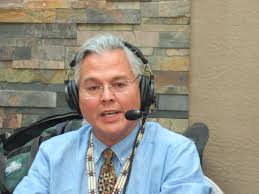
- Details
- By Aaron Payment
Guest Opinion. This past week was significant with the first Presidential Proclamation establishing Indigenous Peoples’ Day on Monday ~ October 11, 2021. This news unfortunately eclipsed another major policy announcement by President Biden in the form of an Executive Order on Indian Education which is framed as follows:
It is the policy of my Administration to advance equity, excellence, and justice in our Nation’s education system and to further Tribal self-governance, including by supporting activities that expand educational opportunities and improve educational outcomes for all Native American students.
As a policy-wonk, I recognize that presidential executive orders are a big deal; not just an expression of values, but in this case a recommitment to Indian Education and a detailed substantive plan. Key to the sustainability is President Biden’s commitment to engaging Indian Country like never before through tribal consultation to guide strategic planning and implementation.
Want more Native News? Get the free daily newsletter today.
The following illustrates this:
Sec 2 (b) The Initiative shall consult and collaborate with Tribal Nations; Alaska Native Entities; TCUs; and State, Tribal, and local educational departments and agencies to advance educational equity, excellence, and economic opportunity for Native Americans by focusing on the following policy goals…[click link below]
The placement of this initiative in the US Department of Education is appropriate given 93 percent of American Indian K-12 aged students attend public schools while seven percent attend Bureau of Indian Education funded schools under the U.S, Department of the Interior. As such, President Biden established that the, "Secretary of Education, the Secretary of the Interior, and the Secretary of Labor shall serve as Co-Chairs” of White House Initiative to oversee these efforts.

As a Member of the National Advisory Council on Indian Education (NACIE), I recognize the respectful commitment to engaging in direct consultation with tribes but also with advisory input and collaboration from American Indian Education professionals who serve on NACIE through the following:
[NACIE] shall serve as the advisory council for the Initiative and shall report to the Initiative, through and as requested by the Executive Director.
There is much work to do to improve the Native American high school graduation rate (the worst of all racial ethnic/ethnic groups) improvement in academic assessment scores, preparedness for college or vocal training, and increase entry into higher education as Native American students experienced the greatest decline in undergraduate enrollment in higher education from 2020 to 2021. With Secretary of Interior Deb Haaland’s focus on reconciliation from past Federal Indian Boarding School Assimilation Policy, an additional need to infuse accurate and age appropriate American Indian history and contributions across curricula, is emphasized.
As a high school dropout at 15 from a low-income rural reservation slum, who went on to earn a doctorate in education, I recognize no one does it alone and that given the right opportunity, everyone can succeed. I am grateful for President Biden’s recognition of Tribal Nations as having a unique Constitutionally established treaty and trust obligation to an education and for making such a clear policy statement in this presidential executive order to fulfill this right.
Sault Ste. Marie Tribe of Chippewa Indians Chairperson Aaron Payment, a high school dropout at 15, earned a GED at 16 and entered college at 17. Payment holds a doctorate degree in education, a master’s in education specialist, a master’s in education administration and a master’s in public administration. He also serves as the recording secretary of the National Congress of American Indians, President of the Midwest Alliance of Sovereign Tribes, and President of the United Tribes of Michigan.
More Stories Like This
The SAVE America Act Threatens Native Voting Rights — We Must Fight BackThe Presidential Election of 1789
Cherokee Nation: Telling the Full Story During Black History Month
Jesse Jackson Changed Politics for the Better
Native News Online at 15: Humble Beginnings, Unwavering Mission
Help us defend tribal sovereignty.
At Native News Online, our mission is rooted in telling the stories that strengthen sovereignty and uplift Indigenous voices — not just at year’s end, but every single day.
Because of your generosity last year, we were able to keep our reporters on the ground in tribal communities, at national gatherings and in the halls of Congress — covering the issues that matter most to Indian Country: sovereignty, culture, education, health and economic opportunity.
That support sustained us through a tough year in 2025. Now, as we look to the year ahead, we need your help right now to ensure warrior journalism remains strong — reporting that defends tribal sovereignty, amplifies Native truth, and holds power accountable.
 The stakes couldn't be higher. Your support keeps Native voices heard, Native stories told and Native sovereignty defended.
The stakes couldn't be higher. Your support keeps Native voices heard, Native stories told and Native sovereignty defended.
Stand with Warrior Journalism today.
Levi Rickert (Potawatomi), Editor & Publisher
